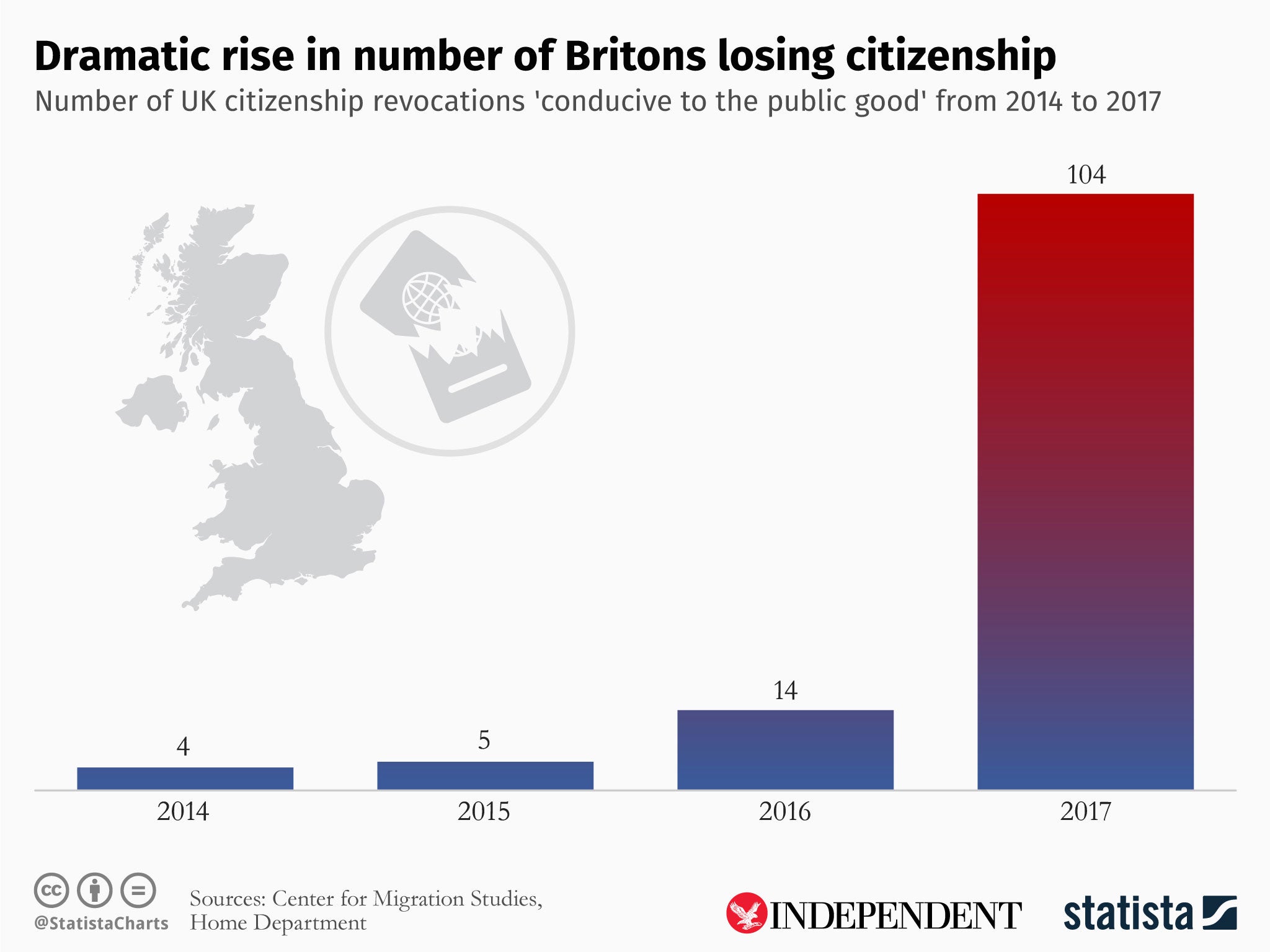Shamima Begum: Bangladesh says Isis bride not a citizen and ‘nothing to do with us’
‘Ms Begum is not a Bangladeshi citizen… there is no question of her being allowed to enter into Bangladesh’
Your support helps us to tell the story
From reproductive rights to climate change to Big Tech, The Independent is on the ground when the story is developing. Whether it's investigating the financials of Elon Musk's pro-Trump PAC or producing our latest documentary, 'The A Word', which shines a light on the American women fighting for reproductive rights, we know how important it is to parse out the facts from the messaging.
At such a critical moment in US history, we need reporters on the ground. Your donation allows us to keep sending journalists to speak to both sides of the story.
The Independent is trusted by Americans across the entire political spectrum. And unlike many other quality news outlets, we choose not to lock Americans out of our reporting and analysis with paywalls. We believe quality journalism should be available to everyone, paid for by those who can afford it.
Your support makes all the difference.Shamima Begum is not a Bangladeshi citizen and cannot enter the country, its government has said, meaning the UK has made her stateless.
“This is a matter of the British government – Bangladesh has nothing to do with this,” said the country’s home affairs minister Asaduzzaman Khan.
Shahriar Alam, the state minister of foreign affairs, said the Bangladeshi government had only learned of Britain’s attempt to strip Ms Begum of citizenship through news reports.
“The government of Bangladesh is deeply concerned that she has been erroneously identified as a holder of dual citizenship,” said a statement.
“Bangladesh asserts that Ms Begum is not a Bangladeshi citizen. She is a British citizen by birth and never applied for dual nationality with Bangladesh… there is no question of her being allowed to enter into Bangladesh.”
Chiranjiv Sarker, head of dual nationality issues at Bangladesh’s foreign ministry, said the government had not been contacted by Ms Begum’s family.
He said that, if approached, the ministry would need to try to verify Ms Begum’s Bangladeshi heritage through her mother to assess possible eligibility for citizenship.
Bangladeshi intervention came after Sajid Javid, the home secretary, told MPs the UK removed British citizenship “only where it will not leave that individual stateless, where they are a dual national or, in some limited circumstances, where they have the right to citizenship elsewhere”.
“Deprivation is a powerful tool that can be used only to keep the most dangerous individuals out of this country, and we do not use it lightly,” he added.
“I have to be, in every case, absolutely confident that it is not only conducive to the public good, but legally proper and correct, and compliant with both international and any relevant domestic law.”
The number of people stripped of British citizenship for the “public good” has soared by more than 600 per cent in a year.
Ms Begum is one of more than 150 people subjected to the measure since 2010, with the number rocketing from 14 people in 2016 to 104 in 2017.
She told ITV News she was “shocked” by the move and suggested she would explore how to gain Dutch nationality through her husband, who is an Isis fighter from the Netherlands.

Mr Javid suggested that her baby will remain a British citizen, telling MPs: “Children should not suffer. So, if a parent does lose their British citizenship, it does not affect the rights of their child.”
Ms Begum’s son, Jarrah, was born on Saturday – three days before relatives were sent a letter telling them the home secretary had made an order removing her British citizenship.
A lawyer told The Independent he is automatically a British citizen “by descent” and may also be eligible for Dutch nationality.
Ms Begum’s family lawyer previously said the UK had made her “to all practical purposes stateless” and vowed to launch a legal challenge.
Tasime Akunjee said the 19-year-old was born in the UK and had never visited Bangladesh or held a passport from the country.
“This is a delaying tactic,” he added. “The government is not going to win this, there is case law saying people in these circumstances are stateless and we will win, but how long will that take?”
Lord Anderson, the former independent reviewer of terrorism legislation, told BBC Radio 4’s Today programme that stripping citizenship was a “far simpler” option for the government than letting Ms Begum return, adding: “You don’t need the permission of the court, you sign an order and you don’t have to deal with them.”
The crossbench peer, who is also a practicing barrister, warned: “It could be seen as an abdication of responsibility to remove citizenship from someone who was radicalised in our country.”
In parliament on Wednesday, Liberal Democrat former minister Sir Ed Davey highlighted two previous cases where the government was found to have acted unlawfully by removing British citizenship from two men of Bangladeshi heritage.
The shadow home secretary Diane Abbott highlighted Article 15 of the Universal Declaration of Human Rights, which says “everyone has the right to a nationality” and that “no one shall be arbitrarily deprived of their nationality”.
Joanna Cherry, a Scottish National Party MP, accused Mr Javid of “washing his hands” and “playing to the populist gallery rather than following the rule of law”.
Ms Begum and her baby remain detained in a camp controlled by the Syrian Democratic Forces, while her husband is imprisoned elsewhere in Syria.
Kurdish officials told The Independent she would not be able to leave without governmental assistance.

Join our commenting forum
Join thought-provoking conversations, follow other Independent readers and see their replies
Comments